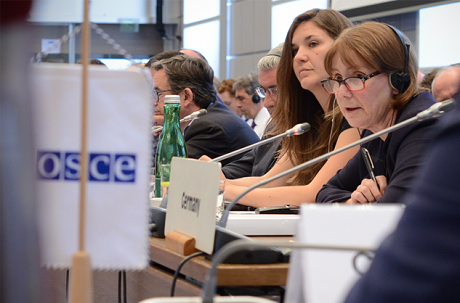US official: Conflicts in South Caucasus and Moldova damage lives

An American official within the US Bureau of Europe and Eurasian Affairs believes the ongoing conflicts in the South Caucasus and Moldova are extremely detrimental and continue "to stunt human potential and damage lives”.
United States (US) Deputy Assistant Secretary (DAS) in the Bureau of Europe and Eurasian Affairs, Kathleen Kavalec voiced her opinion at the first working session at the 2016 Organisation for Security and Co-Operation in Europe (OSCE) Annual Security Review Conference, which took place two days ago.
In her speech the US official said "when rules are broken, the answer is not to create new institutions, but rather to hold participating states accountable for their actions”.
In this context she mentioned the continued violations on Georgian soil and the occupation of Georgian territories by Russia.
In Georgia, increasing access by the international community to Georgia’s de facto Abkhazia and Tskhinvali (South Ossetia) regions is critical,” Kavalec said.
The current situation – where the European Union Monitoring Mission (EUMM) does not have access to the regions – is unacceptable and inconsistent with the 2008 Ceasefire Agreement [signed between Russia and Georgia after the Russia-Georgia war in early August 2008],” Kavalec added .
The US high official condemned the "borderisation efforts” of Russia on Georgian land, which meant creeping occupation and the installation of new border signs on Georgia territory by Russian and de-facto representatives.
The US supports an enhanced OSCE role in Georgia, which would allow the international community to do more on the ground to address humanitarian and security concerns,” she said.
Kavalec added the US welcomed an agreement signed within the Geneva International Discussion to re-start the Gali International Prevention and Response Mechanism (IPRM).
She said this was an important step toward restoring dialogue in the region and defusing tensions along the Administrative Boundary Line (ABL) with Abkhazia.
Similar talks were already in place with de facto leaders of Tskhinvali (South Ossetia) region.
 Tweet
Tweet  Share
Share